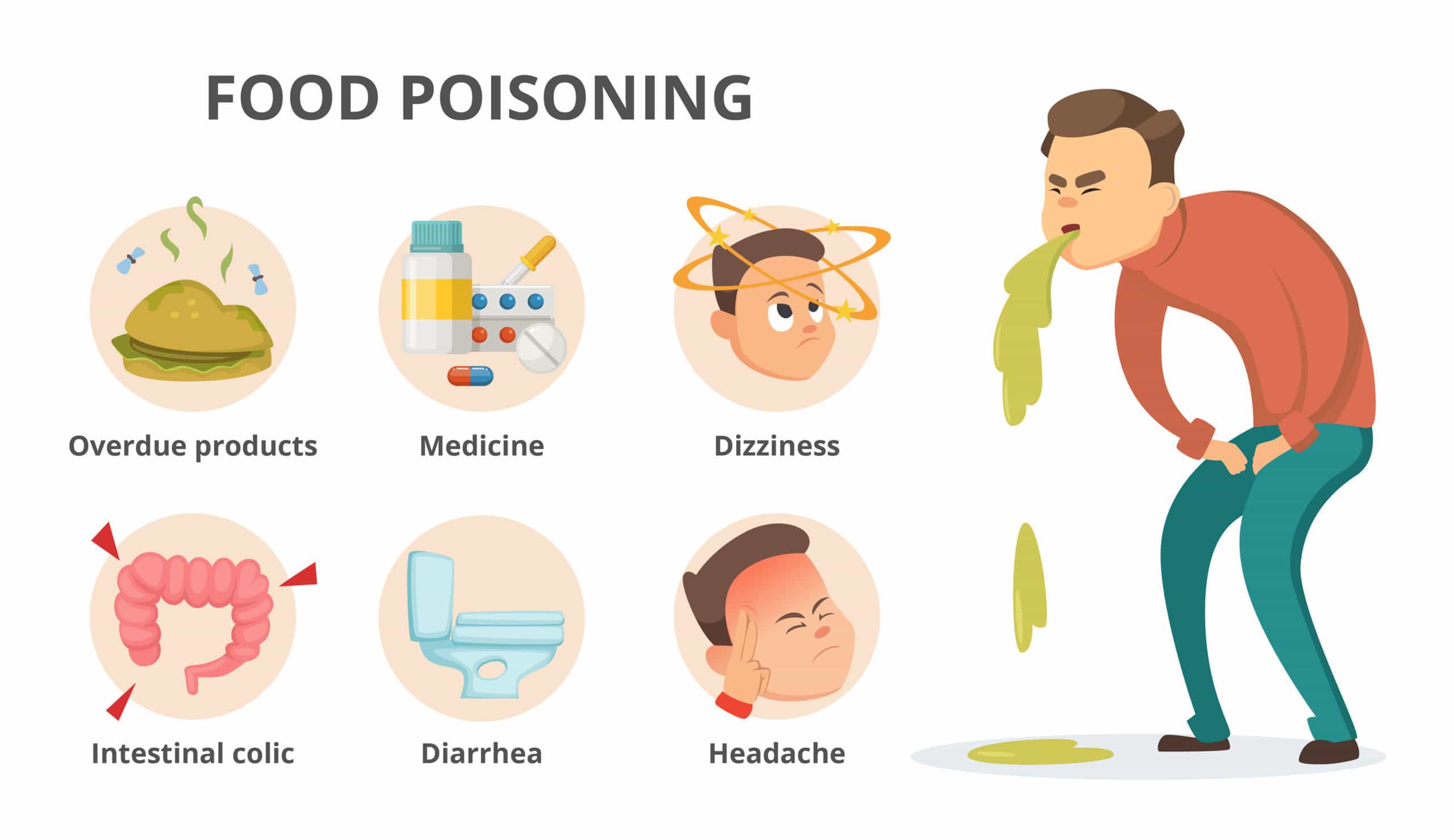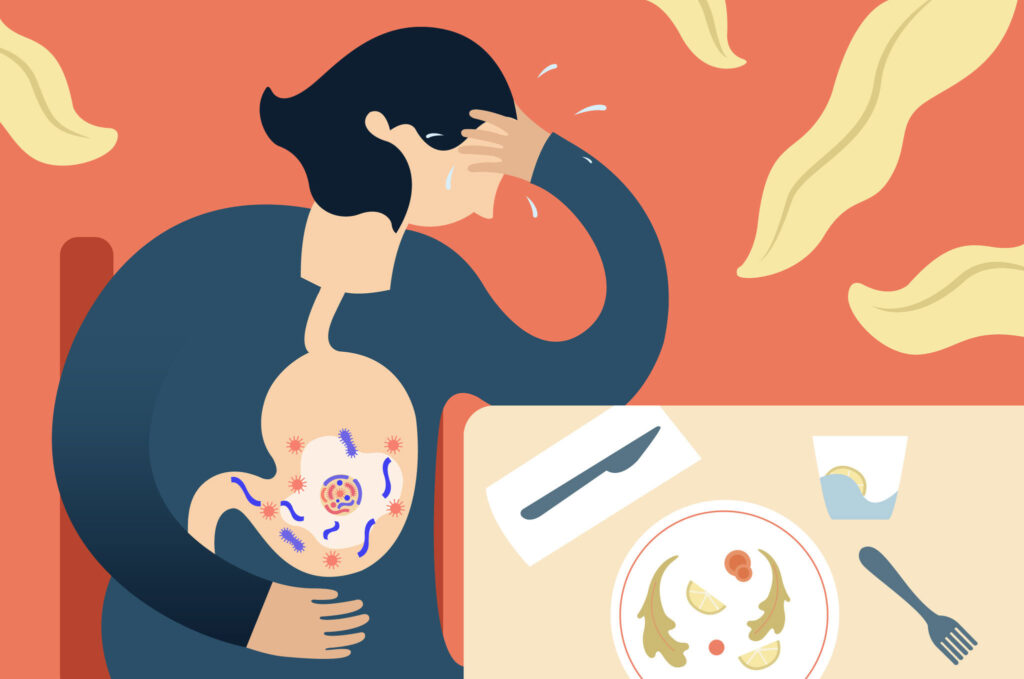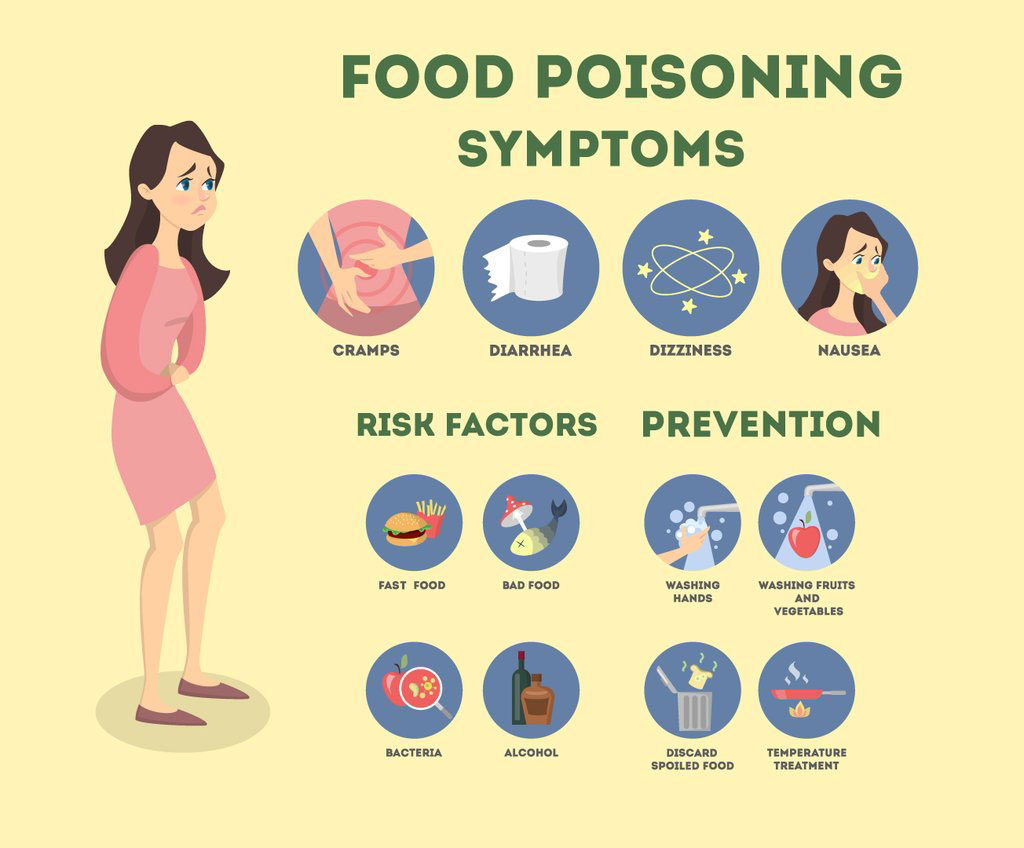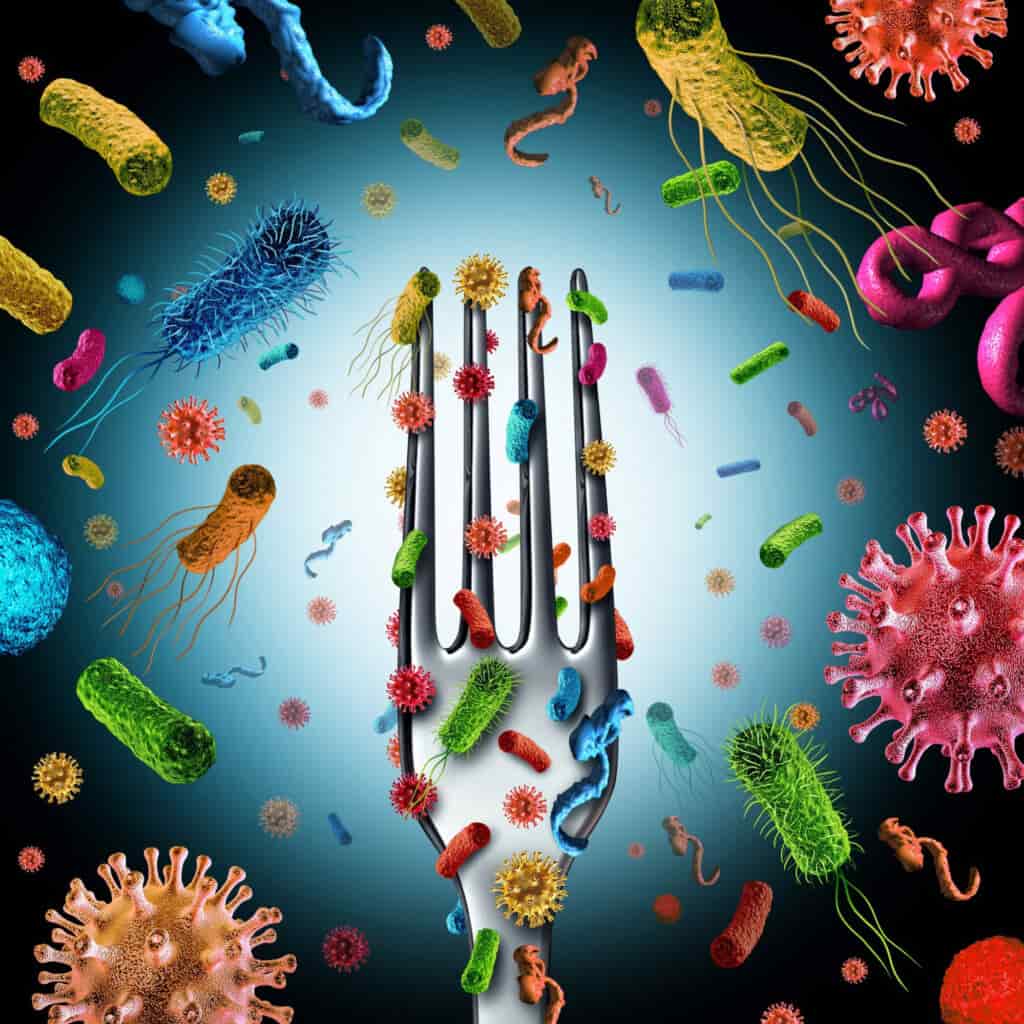We all love trying new cuisines but sometimes memories of a great meal can turn sour within a couple of hours. As you experience nausea you doubt that you are victim of food poisoning and you might be wondering when you’re going to feel better.
Food poisoning symptoms can range from anywhere between mild to very serious. Your symptoms vary depending on the germ you swallowed with food. The most common symptoms of food poisoning include:
- Upset stomach
- Stomach cramps
- Nausea
- Vomiting
- Diarrhea
- Fever
In a year nearly 48 million cases of foodborne illnesses are registered in the U.S. Food poisoning results from eating food contaminated with pathogens that are infectious bacteria, parasites, or viruses. The foodborne illnesses are mostly gastrointestinal in nature causing disruption to the digestive tract.
The signs and symptoms of food poisoning may start within hours after eating the contaminated food. They may even begin days or weeks after you eat the contaminated food. The symptoms caused by food poisoning normally lasts from a few hours to several days.

WHEN TO SEE A DOCTOR
You should consult with your healthcare provider if you experience any of the below signs or symptoms, including:
- Frequent bouts of vomiting.
- Inability to keep liquids down.
- Vomit or stools with blood.
- Diarrhea for more than three days
- Extreme pain and/or severe abdominal cramping
- The temperature higher than 100.4 F (38 C).
You may lose fluids leading to dehydration during food poisoning. You may also experience symptoms such as excessive thirst, dry mouth, little or no urination, severe weakness, dizziness, or lightheadedness. You may also experience neurological symptoms such as blurry vision, muscle weakness and tingling in the arms as an effect of food poisoning.
TYPES AND CAUSE OF FOOD POISONING
Food poisoning could be caused by a number of germs if you are exposed to them. Food poisoning is categorized into 5 types, including:
Viruses and Bacteria: Viruses are the most frequent cause of food poisoning in the U.S. The next highest causes are bacteria. The most common pathogens that cause food poisoning and might even lead to hospitalization due to contamination of foods or fluids. Sometimes, severe case of food poisoning can even lead to death, including:
- Norovirus
- Salmonella
- Clostridium perfringens
- Campylobacter
- Staphylococcus aureus
- Salmonella
- Campylobacter
- Toxoplasma gondii
- Escherichia coli (E. coli)
Toxins: Various toxins can cause food poisoning. These toxins are produced by bacteria on or in food, while others are produced by plants and animals/fish or other organisms that are ingested. Some plants, animals or fish can be poisonous under certain conditions but they are encountered infrequently or under special conditions. The outbreak is relatively small even though there are many bacterial, plant, and other toxins that can be ingested with food and water.
Parasites: The parasites are mostly ingested with contaminated food or water, which include:
- Giardia
- Amoeb
- Trichinella
- Taenia solium
Chemicals: Some of the chemicals act as toxins that can cause food poisoning. Although most chemicals do not enter into foods, but some do and cause food poisoning. Chemical such as mercury is found in drinking water and in fish such as tuna and marlin. Water that we drink is contaminated with various chemicals including pesticides, polychlorinated biphenyls, and lead that can lead to food poisoning.

HOW LONG DOES FOOD POISONING LAST
Food poisoning symptoms might be mild to moderate and may resolve in about 24 to 48 hours with no specific medical treatment. But, if you have any signs of dehydration such as decreased or no urination, dry mouth, increased thirst, dizziness, and weakness, blood in the stools, fever, vomiting or diarrhea longer than 72 hours, you should reach out for medical help immediately.
You are at a high risk of infection after eating contaminated food. The risk would depend on the organism, the amount of exposure, your age and your health, such as:
- Older adults: As you age, your immune system be slow and less effective to infectious organisms as when you were younger.
- Pregnant women: Pregnancy involves changes in metabolism and circulation that may increase the risk of food poisoning. The food poisoning reaction in pregnant women may be more severe during pregnancy and rarely, your baby may get sick, too.
- Infants and young children: Children and infants do not have fully developed immune systems thus they are prone to infections.
- People with chronic disease: People with a chronic condition such as diabetes, liver disease or AIDS or receiving chemotherapy, radiation therapy for cancer reduces your immune response posing them at a high risk of infection.

TREATMENT OF FOOD POISONING
If you have a healthy immune systems you will generally recover from food poisoning without formal treatment. But if you have severe symptoms and type of illness, certain treatments can help.
The most common side effects of food poisoning is dehydration, so when treating food poisoning, it’s important to drink plenty of fluids.
The doctor would recommend the treatment for food poisoning on the source of the illness and the severity of your symptoms that may include:
- Replacement of lost fluids: Fluids and electrolytes — minerals such as sodium, potassium and calcium that maintain the balance of fluids in your body — lost to persistent diarrhea need to be replaced. Some children and adults with persistent diarrhea or vomiting may need hospitalization, where they can receive salts and fluids through a vein (intravenously), to prevent or treat dehydration.
- Antibiotics: Your doctor may prescribe antibiotics to cure the bacterial infection leading to food poisoning. This will help cure your symptoms that are severe. Antibiotics have to be administered intravenous during hospitalization is the food poisoning caused by listeria. If you are pregnant prompt antibiotic treatment may help keep the infection from affecting the baby.
- Balanced Diet: While recovering from food poisoning, it’s important to eat mild foods or follow the BRAT diet, which consists of bananas, rice, apples, and toast. Some of the foods like ginger and ginger ale also help calm the related symptoms like stomach ache and nausea. You should avoid spicy foods, caffeine, and alcohol that can disturb the stomach and cause gastrointestinal symptoms.

Some of the symptoms of the stomach bug and food poisoning are similar. The doctor need to determine which problem you may have.
The symptoms of food poisoning:
- Develop more quickly or later after exposure.
- Worsen earlier than symptoms of a stomach bug.
- Duration is shorter than symptoms of a stomach bug.
Depending on the cause of food poisoning, your immune system function, as well as your overall health, the condition may become severe enough to require medical attention. Usually you can manage the condition with rest, hydration, and at-home medical treatment. If you are not sure about the reason for your symptoms, consult your doctor to be safe and avoid complications.
If you or anyone you know is suffering from digestive problems, our expert providers at Specialty Care Clinics will take care of your health and help you recover.
Call us on (469) 545-9983 to book an appointment with our specialists.
